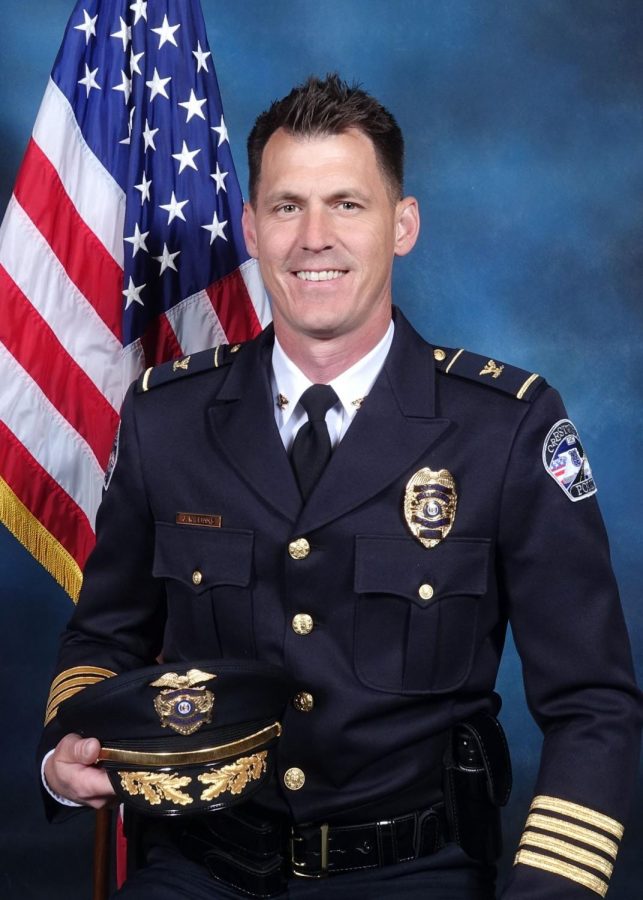Someone once asked county Police Chief Tim Fitch why taxpayers should have to fund treatment for those who use drugs like heroin.
After all, the man told Fitch, drug addicts have no one to blame but themselves for their condition.
“My response was: You’re already paying for it,” Fitch said, noting it costs three times as much money to incarcerate users than to treat their addictions.
The police chief and others addressed an audience of more than 300 during a forum on heroin last week at Oakville Senior High School. It was the most recent and most well-attended in a series of town-hall meetings that the county and the St. Louis chapter of the National Council on Alcoholism and Drug Abuse, or NCADA, have offered in response to a rise in youth heroin cases throughout the region.
“This is why we’re here. This is why we’re talking about this problem,” Fitch said after dozens of hands shot up when he asked if heroin had affected anyone in the crowd directly or indirectly. “… This doesn’t mean there’s a heroin problem here at Oakville Senior High School. It doesn’t mean that the Mehlville School District has a heroin problem per se.
“But what I will tell you is … our suburban areas of the county, south and west, lead in heroin deaths and heroin overdoses in the St. Louis County area … (T)he overwhelming number of issues have been right here in south county and west county.”
Data presented showed the number of heroin overdoses in the county jumped to 60 in 2010 from 10 in 2001. There have been 49 heroin-related deaths in the county through July 2011, according to the data.
“It reaches every area of our society,” NCADA spokesman Dan Duncan said.
Use of heroin, which is often referred to as “buttons,” has spiked for several reasons, Duncan said, including the fact that many young people simply don’t know how deadly the highly addictive opiate is.
The drug also has become more widely available and purer — meaning it doesn’t have to be injected for users to achieve the quickest and strongest high, Duncan said.
“… They’re snorting it. They’re smoking it. It makes it more relatable to other drugs that they may have used such as marijuana or cocaine. So to them it’s just another drug … when in fact, it’s not,” he said.
Heroin is arriving in St. Louis from South America and Mexico, and dealers “have found a willing market in west county, south county, all over the area — kids who have money who are willing to try it, willing to buy it,” Duncan said.
Heroin also is relatively cheap, said Capt. Chuck Boschert, West County Precinct commander. Capsules containing 1/20 of a gram of heroin, which can deliver a three-to five-hour high, can be purchased for $10, Boschert said.
Over time, as the habit becomes more expensive, users begin to shoplift and commit other crimes to get the money to sustain it, Fitch said.
However, the chief stressed county police are more interested in nabbing heroin dealers than users. Fitch said drug users caught committing crimes are given the chance to seek treatment — and to provide authorities with information about their dealers.
Speakers said the best defense against teen heroin abuse is parental involvement.
Parents should look for such heroin paraphernalia as syringes, candles and empty capsules. They also should take note if a child grows unusually sleepy, irritable or secretive, among other symptoms.
“What we need is parents,” said Kate Tansey, executive director of the county’s Children’s Services Fund. “We need you to join our team and get the word out.”
Tansey said addiction is a brain disease that is treatable, even though there is no universal remedy. She noted the Children’s Services Fund — established upon voter approval of a quarter-cent sales tax in 2008 — funds three agencies that provide outpatient substance abuse treatment.
Marilyn Smashey, who found her 18-year-old son dead in his room from a heroin overdose in December 2009, called the drug a “horrible, horrible problem.”
“When you look into the face of death, and it’s your child, you will never, ever be the same ever again. Ever.” Smashey said. “… This is the most difficult thing I have ever been faced with in my life, and I most certainly hope that no other person ever has to bury a child, especially over heroin.”
For more information about heroin and resources for treatment, visit the NCADA’s website,
.
To report heroin or other drug activity to county police, call (314) 863-3673 or e-mail drugenforcement@stlouisco.com.








